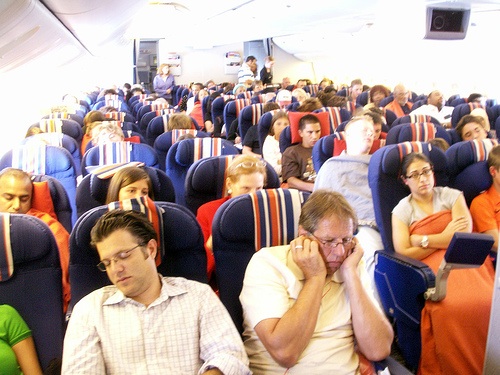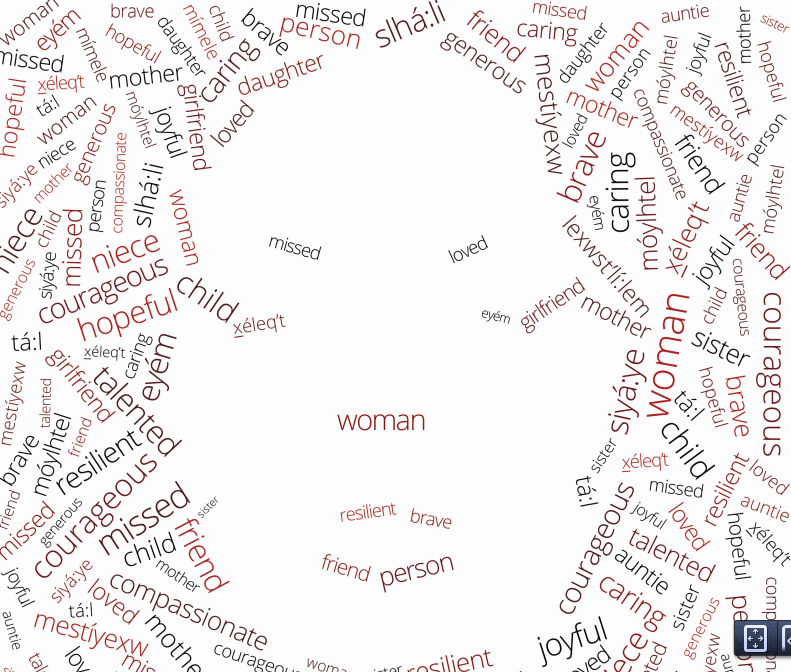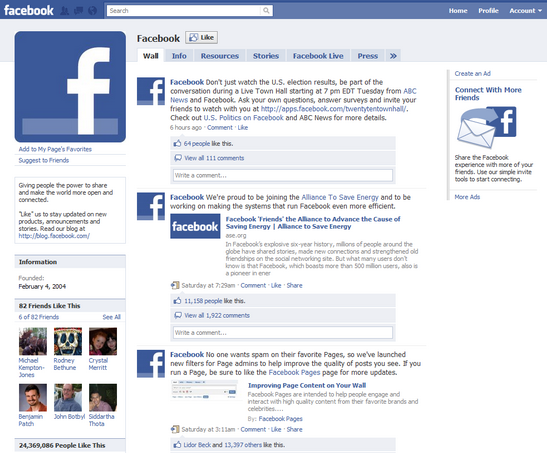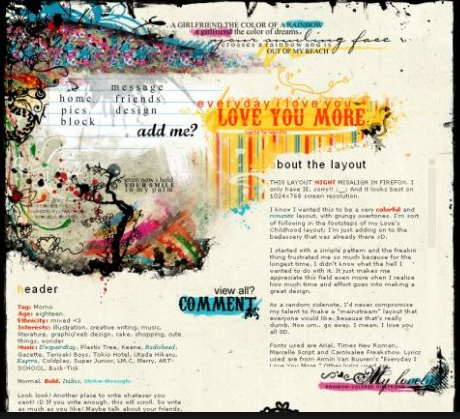I often take my name for granted – I assume people around me know it, and I forget how untrue that often is until I’m dropped in the middle of the gigantic Heathrow airport in London for three hours, surrounded by strangers.
There is little less lonely than travelling alone, particularly when your travel time exceeds 12 hours. Over 12 hours of silence (interspersed with the occasional thank you when you get your stale orange juice in the plastic cups – how they manage to make orange juice stale, I’ll never know), and nobody who knows your name. Nobody who knows (or cares) about your story. I am anonymous. And it’s not pleasant.

Photo by http://johnmariani.com/archive/2011/111023/cramped%20plane.jpg
My small gripes are a far cry from the danger of being permanently lost in the crowd, however. I may have a taste of what it’s like to be unknown now, but soon I’ll be with people who know me again. For those who are silenced permanently through large scale tragedy, they risk becoming statistics and lost forever. This is why we carve their names in stone. This is why Maggie De Vries’ Missing Sarah does her sister the ultimate service by naming her and telling her story. By doing so, she reminds us that Sarah was more than a statistic. She was a person with personal connections, who is missed by those who knew her.
There was some debate in class about whether labeling the missing women as sisters, mothers, friends, daughters, aunts, girlfriends, etc, simply tried to recategorize them into socially acceptable categories so that it would ‘matter’ that they went missing. I disagree. People are social animals. Even the most outcast amongst us has someone who knows his or her face, or his or her name. That is why I don’t object to the cover of Wally T Oppal’s Forsaken inquiry into the missing women. Yes, he puts labels on them. ‘Auntie’. ‘Mother’. ‘Friend’. ‘Sister’. ‘Daughter’. But I don’t see that as malicious, or just pandering to his (indubitably more privileged) audience so that they’d ‘care’. I see it more as a reminder that a person is more than what they do. A person is also what they mean to others. It’s a different sort of remembrance – the reminder that somebody misses them, that you would miss them if it had been someone you knew. I don’t see it as trying to erase the fact that they mostly worked in the sex trade – rather as a reminder that they were more than their job. Perhaps I’m wrong and this is wildly offensive. I don’t know. I have had four hours of sleep and I’m sitting in an airport alone craving human connection. But that was what stuck out to me in class this week – that names and labels don’t have to box people into socially acceptable categories. They’re just the best tool we have to express what one person means to another. That is why Missing Sarah is a beautiful story – because despite her hardships, Maggie finds all the ways Sarah connected with others and takes comfort in how her sister will be remembered by them as more than her statistic.

Work Cited
Vries, Maggie De. Missing Sarah: A memoir of loss. Toronto: Penguin Canada, 2008. Print.



